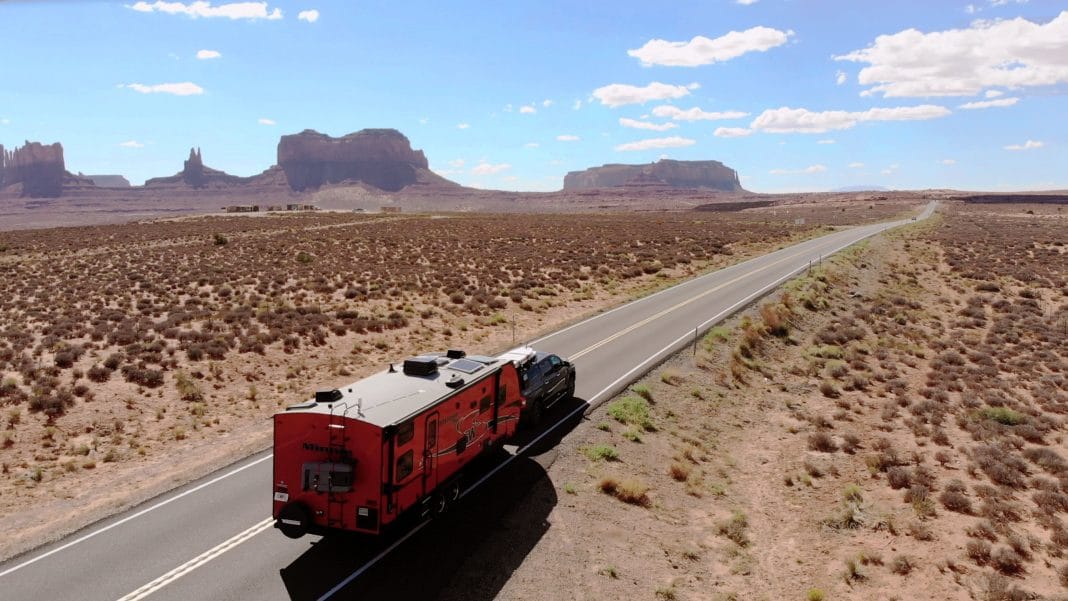There are times when we consider the conversations of truckers on the CB radio prime time entertainment. Truckers in the West are not very talkative. You don’t seem to hear from them unless they have something to say. East of the Mississippi, however, truckers get real chatty. They talk to one another about anything that comes to mind – sometimes without filtering it through their own mind. That’s the entertaining part.
Truckers also use their CB radio to advise one another of road and traffic conditions, and these advisories can also be valuable to motorhome travelers. Truckers will radio which lanes are open if there is a traffic situation, allowing us to change lanes before traffic begins to back up. They will also broadcast directions to alternate routes when there is an unexpected road closure. We have avoided a number of time-consuming traffic jams by paying attention to the truckers.
Have you ever wondered what the truckers are talking about on the CB radio? They have developed their own descriptive road terminology. It took a while, but we have managed to decipher most of what we hear.
The term “smokey” or “bear” is used when talking about the state police and highway patrol officers who patrol the interstates. Why? Because the hats they wear often resemble the one worn by Smokey Bear.
And did you know there are different types of bears? A “full-grown” bear is a state police officer or highway patrolman. Since one of their primary duties is to police the interstates, truckers are constantly updating one another about the location of full-growns. “County Mounties” are local deputy sheriffs. They may or may not be interested in truckers and don’t seem to generate as much concern as the full-growns. A “local yokel” is a city police officer. Local yokels rarely enforce traffic laws on interstate highways but truckers keep a wary eye on them anyway. A “polar bear” refers to a white patrol car. “Plain-wrapper” is an unmarked patrol car. A “bear in the air” is a police helicopter or airplane. A “she bear” or “mama bear” is – you guessed it – a female police officer. And, one of our favorites, a “kojac with a kodak,” refers to a police officer using a radar gun.
Those strips of tire tread lying on the road are called “alligators.” If your wheel rolls over an alligator, the alligator has a tendency to jump up and attack your vehicle. The highway department trucks that remove these and other road hazards are known as “alligator catchers.”
Truckers also apply their own terminology to the vehicles sharing the road with them. A “four-wheeler” is anything resembling a car; “stagecoach” is a bus; “bread truck” is a motorhome; and a “draggin’ wagon” is a tow truck.
They have descriptive names for their own vehicles as well. A “covered wagon” is a flatbed or open trailer with a tarp cover. A “parking lot” is a car transporter. And we have heard truckers refer to their sleeper as a “condo.”
A weigh station is referred to as a “chicken coop” (a closed coop is cause for celebration). A “chicken inspector” is one who works in a chicken coop.
When a trucker warns of a “brake check,” he’s talking about an unexpected slowdown in traffic causing brakelights to go on everywhere. Get ready to slow down or stop.
The far left or fast lane is the “hammer lane.” That’s where you can put your “hammer” or accelerator pedal down – just make sure Smokey is not around.
The mile markers at the side of the road are called “yard lines” or “yard sticks.” If something is located at the “120-yard line,” it is near the 120-mile marker. If someone is “in the bushes,” they’re off the side of the road and pretty much out of sight until you get close to them. Bears like to hide in the bushes.
Listening to the truckers on the CB radio isn’t only entertaining; it can also keep you tuned into the road. And, every now and then, you may find yourself enjoying a conversation with a trucker who also happens to be an RVer.
Visit Joe and Vicki’s website at www.rvknowhow.com


